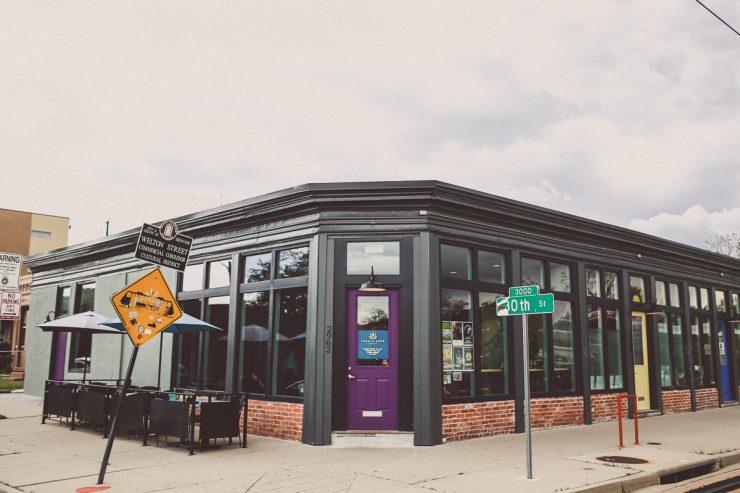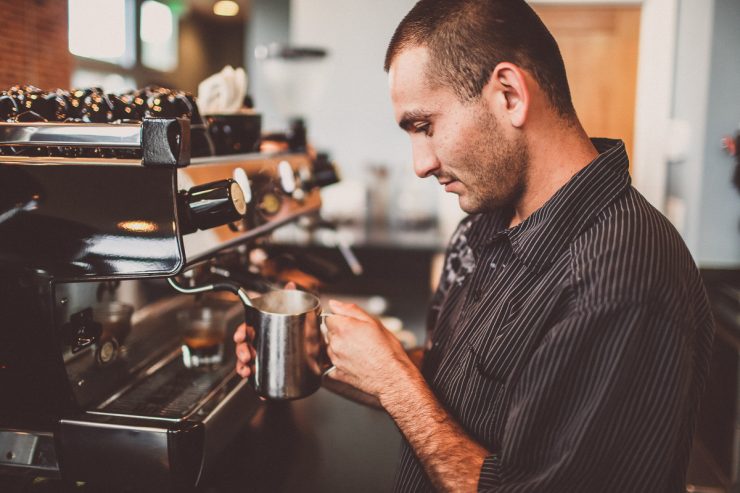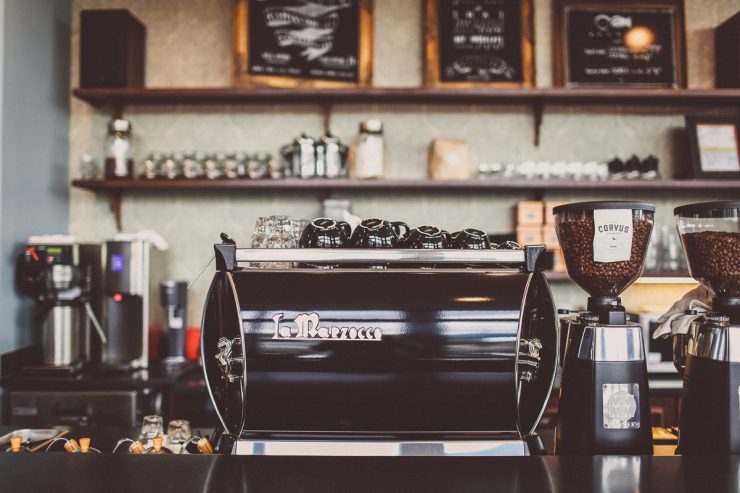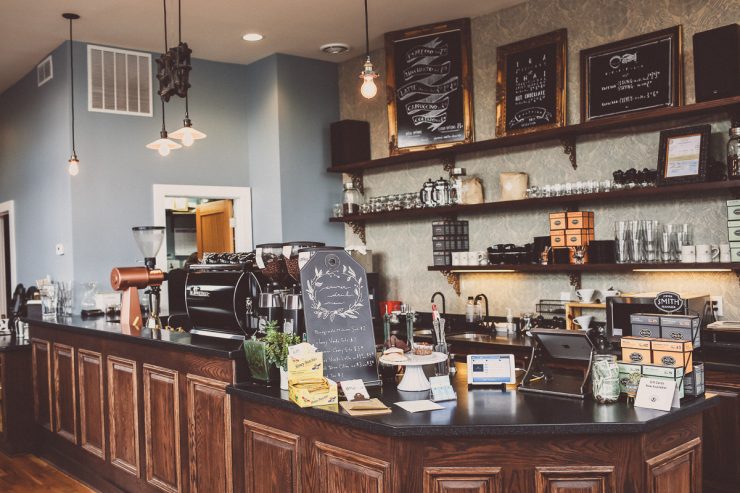
“Community” is a term frequently proffered when discussing coffee shops and their aspirations. Most of the time, shops use this word as a means of conveying something they are trying to create—an atmosphere or vibe that is as welcoming to regulars as it is to first-time guests (in hopes that they become regulars, too). But there’s a broader sense of “community”, one not defined by cafe walls or patronage to any particular establishment, but which refers to a larger populace, to the people and places around us. It is within this larger sense of the word that Denver’s Purple Door Coffee operates. Staffed entirely by homeless teens and young adults looking to leave that lifestyle behind, Purple Door offers at-risk youth a chance to learn a trade and make a positive change in their lives.

First opened in April 2013 in the historic Five Points neighborhood, Purple Door is a brainchild of Madison Chandler and Mark Smesrud, two of the program’s three present-day directors. “Purple Door came about in college when Madison and I interned with Dry Bones Denver, a program that exists to build relationships with the many ‘street kids’ here in the city,” Smesrud says. “Dry Bones had long dreamed of employing their friends from downtown to help them exit street life. Madison picked up this dream in 2010 and she convinced me to move here in 2012.”
Purple Door is, on the surface, quite like other specialty shops; it has all the qualities that may reasonably identify a shop as “Third Wave.” They offer top-notch coffee from two of the city’s finest roasters, Corvus Coffee Roasters and Andy Sprenger’s Sweet Bloom Coffee Roasters. They have the machinery—a black two-group La Marzocco GB5 and three Mazzer Major grinders for the espresso program, and a copper Mahlkönig EK 43 anchoring their Chemex-focused manual brew bar. They have the modern cafe design elements—exposed brick walls, Edison bulbs, and reclaimed accoutrements coming via Singer sewing stands repurposed as the bases for Purple Door’s tables. They even have an experimental summer drink menu, a concept gaining popularity in specialty shops across the country—espresso cherry soda is the new cherry Coke.


In short, you could walk into Purple Door, get a really nicely made cappuccino, sidle up to one of their comfy mustard-colored velour chairs to do a little work or hang out with a friend, and leave completely satisfied with your experience. And while a thoughtfully prepared drink is noteworthy even in this fever-pitch specialty coffee climate, if you did follow the narrative as described, and it is a very easy narrative to follow—perhaps intentionally so—you’d miss entirely the real story to Purple Door: the people.
Working the day I visited was Katie Koehler, Purple Door’s third director, and Joe. Joe is in his twenties and has spent most of the last 14 years living on the street. He’s been around drugs his entire life and struggled with addiction until April of last year, when he decided to get sober. He has been a barista at Purple Door since September and is now a shift lead and is in charge of coffee ordering and shop maintenance. “He gets coffee,” says Smesrud. Joe is the prototypical hire at Purple Door. He’s a driven individual—as evidenced by his graduating high school while homeless—who needed a chance to succeed, a chance Purple Door was able to provide. He’s now finished with his first semester at college with a 4.0 GPA and wants to get into roasting.

Given their people-driven focus, it would be forgivable for Purple Door to slack on the coffee preparation and quality. Yet, they don’t. For Smesrud and Chandler, it is more than just a love of coffee that drove them into the specialty coffee world. “[Being a specialty coffee shop] creates the capacity to teach a marketable skill in the current coffee industry. It teaches attention to detail and doing things well and with intention, which applies to any industry our employees enter after working here,” Smesrud states. “And it’s where the Denver coffee scene is; specialty shops are doing better in Denver these days, so it’s simply a better business move.”

Beyond the obvious good Purple Door is doing for its community, its mere existence speaks to an upward trend in the specialty coffee world; the role of barista has gradually moved from part-time job to bona fide career. The perception of the barista is transforming into that of a craftsman, more akin to chef than Liberal Arts dropout. That a barista apprenticeship program can teach marketable skills and help people earn livable wages is something to be excited about. As an industry, it is something to be proud of. But I can’t imagine Purple Door concerns themselves too much with what their existence means to the coffee world at large. They are more focused on their community and the quality of the coffee they serve. And they have hit the mark on both counts.
Purple Door Coffee is located at 2962 Welton Street, Denver, Colorado. Follow them on Twitter, Facebook, Vimeo, and Instagram.
Zac Cadwalader is a Sprudge.com staff writer based in Dallas, Texas. Read more Zac Cadwalader on Sprudge.
Photos by Caitlin Fairly.
The post Denver: Purple Door Coffee, A Story Of Coffee & People appeared first on Sprudge.

